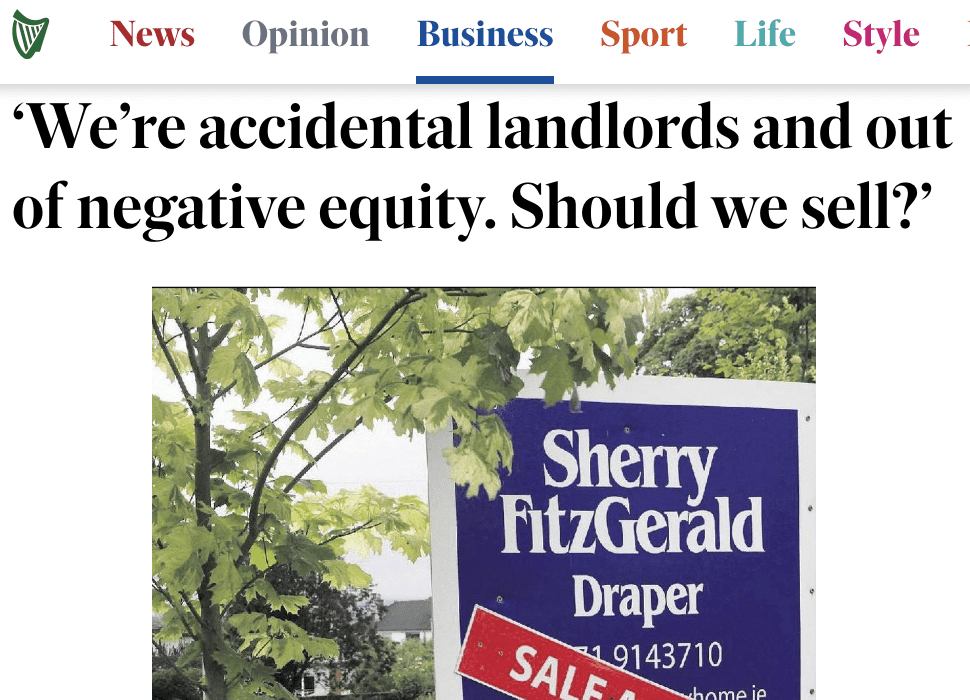My husband and I bought a flat in Dublin in 2007. When we had a family, we outgrew the flat and rented it out. We’ve been accidental landlords ever since.
In recent years, the value of the property has finally overtaken what we owe on the mortgage and with the burden of maintenance costs, taxes and tougher regulations, we’re thinking of selling up. Should we sell now, or does it make more sense to hold on for a few more years?
– Geraldine, Co Kildare
Suppose for a moment you were starting afresh. If you had, say, €250,000 in cash right now, would you plough it into an investment property in Dublin?
There are practical and financial reasons to say yes. At the moment, there’s a shortage of housing in many parts of Ireland, which helps drive rental income.
And after enduring the long years of negative equity, you have finally built some value in the property.
But the financial case for staying put is open to question. Mortgage rates are rising, and there is some initial data from the REA Average House Price Index that prices in Dublin are cooling.
For sure, Irish property can be profitable. But it seems likely that the years of recovery which generated the strongest annual returns are behind us.
What’s more, tying up a lot of your wealth in residential property on a rainy island at the edge of Europe has plenty of downsides. It requires time and money to manage, it’s hard to sell in a hurry, and it’s aggressively taxed. You probably also have a major stake in the home you now live in, concentrating your Irish property exposure further.
You may be an accidental landlord, but you have an opportunity to become a deliberate investor. So make an objective comparison of your options. Here are three.
The advantages of staying put
The first is to hang on. You could double down on your rental property, maximise the rental income, and plan to stay in the game, say, for another five years. While the future sale price of the flat is hard to predict, you’ll be paying down the mortgage, driving up its equity value.
At the same time, consider the risks. How will you feel if you have to fund major repairs, or go through a second property price collapse?
Should you get out now?
Alternatively, you could keep it simple, and get out now. As you bought at the height of the boom, it seems likely you’ll have little tax to pay on the proceeds. You could use that money to pay off the mortgage on the apartment, and reduce the mortgage on your main home if you have one. With the extra savings, you could boost your pension, as it’s the most tax-efficient way to save.
Again, consider the potential downsides. In particular, this route might be simple but it may not maximise your wealth.
What’s the alternative if I sell my buy to let property?
Thirdly, you could sell your flat and build an investment alternative which avoids many of the risks of buy-to-let property, and offers scope for meaningful returns.
There are plenty of alternatives with a track record of superior returns, and better diversification of risk. While Irish house prices are up just 4% over the last fifteen years, for example, a representative global equity fund is up over 160%, even after twelve miserable months in the stock market last year.
What’s more, funds have grown in a way which is not dependent on any single industry, country or asset type. They can be added to or sold quickly, and require a lot less management by you as the investor.
Deciding to sell the flat you lived in as a young family isn’t pure maths, with a single right answer. Putting the alternatives side by side will help you decide your next move.
This is adapted from a Moneycube column which appeared in the Sunday Independent on 22 January 2023.










